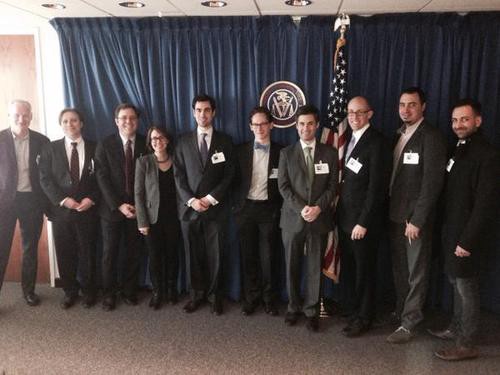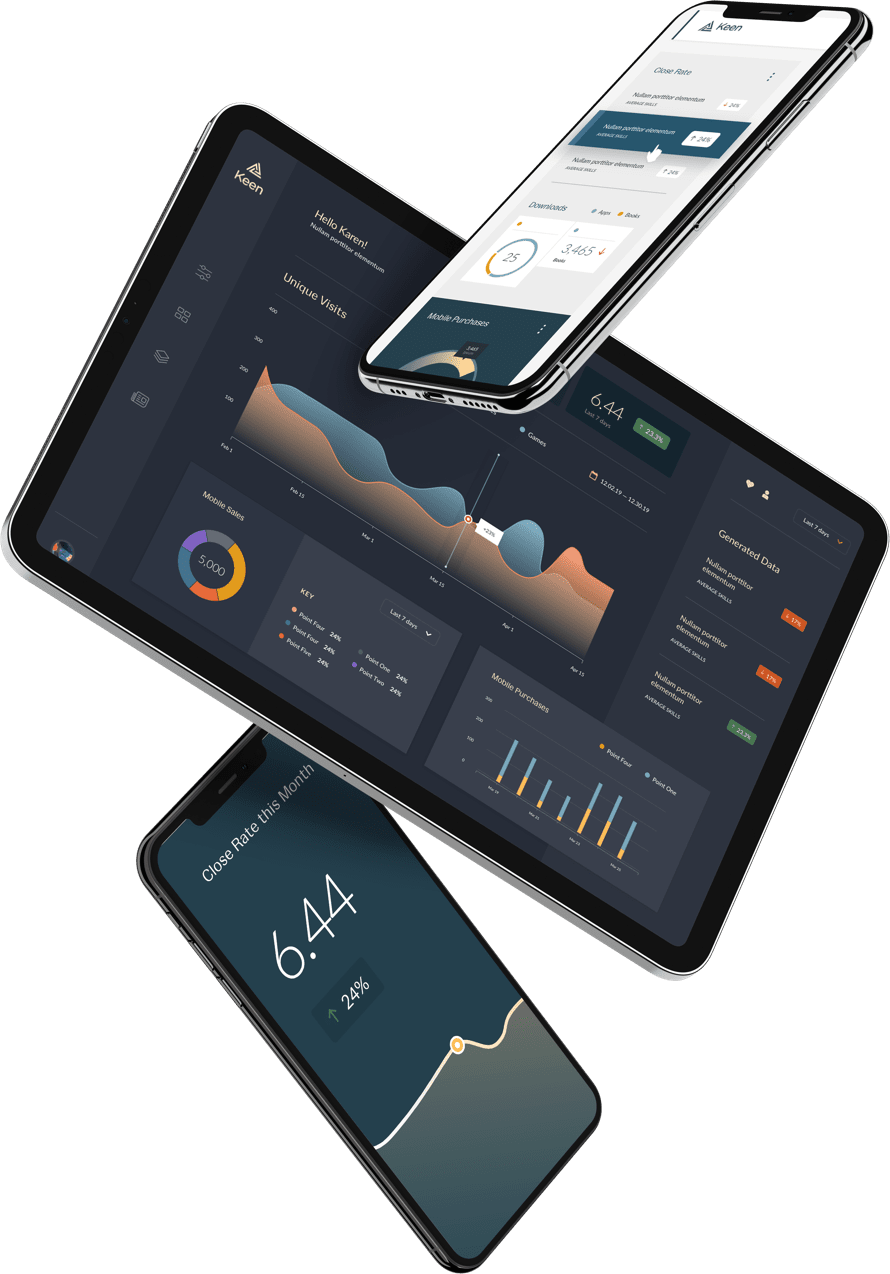Yesterday marked a huge moment in the fight for net neutrality and an open internet. After years of contention and debate, the FCC voted to ensure that the internet remains an open utility uncontrolled by corporate interests. If you’re anything like us, you’re probably breathing a huge sigh of relief.
We’re also super proud, though, that a member of the Keen team had the opportunity to speak to members of the FCC and Congress on the subject of net neutrality on the eve of this critical vote.
Two weeks ago, our very own Dan Kador joined a handful of representatives from other startups in a fly-in to Washington D.C. to offer up some perspective on how the policy could affect the startup industry. Here’s Dan with more info on exactly what went down:
How and why did you get brought into this whole thing? The FCC invited a bunch of startups to discuss net neutrality, right? For what reason? What other startups were invited along with you?
Caroline [part of our Advocacy team] sent us an email from a group called Engine. They were looking to send startup folks who are interested in net neutrality to Washington D.C. to speak with members of the FCC, House, and Senate. I connected with them, and they were eager to get a group together before the FCC announced its decision.
Washington is used to hearing from the big guys. Comcast, Verizon, even Netflix — they’re the ones spending garbage bags full of money on this. They don’t get to hear from young companies like ours, and they’re eager to hear our perspectives.
Alongside Keen, we had representation from Vimeo, Etsy, Foursquare, Union Square Ventures, Bigger Markets, Capitol Bells, and Spend Consciously.
What was the itinerary like? Where did you go? Who did you speak to? What was the format? What did they ask you?
They call it a “fly-in”. We take one day and try to have as many meetings as possible. I flew into D.C. Wednesday night. We met as a group Thursday morning at the Mandarin Oriental, then walked over to the FCC. Our first meeting was with FCC Commissioner Rosenworcel and her staff. We introduced ourselves and then discussed why net neutrality was important to us. Rosenworcel is an ally, so we spent much of the meeting talking about how we could best use our time in DC with people who weren’t as aligned with us.
Then we met with members of FCC Chairman Wheeler’s staff. This meeting was mostly spent on digging into some of the specific details of what the FCC might rule on. Things like interconnection, paid prioritization, and zero rating. Our goal was to have the FCC write rules that were as simple and as clear as possible.
After that, we had a series of meetings with staff of various senators and representatives. In these meetings, we had a few goals. The biggest was to impress upon them that we wanted them to support the FCC’s decision. One big risk is that Congress might wade into this debate and try to legislate. Our belief is that we can get much stronger and better protections if the FCC is left to its own devices. Any legislation that passes the Republican-controlled Congress is going to be worse for net neutrality than what the FCC has now passed.
What were the points that you made in these discussions? Basically, why do you think net neutrality is important — both as an average person and as someone at a startup?
There were a couple important points we were trying to make.
First, that net neutrality is essential for entrepreneurship, especially in tech. Without net neutrality, large incumbents could easily pay to enforce their monopoly over a particular industry. Imagine if Comcast could charge its internet subscribers extra for access to the next YouTube but give access to Hulu for free? It would stifle innovation.
We also wanted to make the point that startups need simple and understandable rules for how to bring complaints. If I have a reasonable belief that I’m being made to pay more for my service’s traffic, I need a quick and easy way to bring that complaint to the FCC and have action taken quickly. Otherwise, there would be a strong stifling effect on innovation. Imagine if the process involved spending millions of dollars on lawyers and several years? No startup could grow under those circumstances.
As an average person, this is really important. One of the main reasons we’ve seen so much innovation over the last 30 years is because of the internet. If it suddenly became an uneven playground, we’d see a lot less growth. I don’t want a small group of ISPs deciding what technology wins and what technology dies. I want consumers to decide. We get that with net neutrality.
Last, but definitely not least, I think high-speed access to the internet is a fundamental human right at this point and the FCC’s ruling helps protect that.

That’s Dan in the middle, with the bowtie!
Anyway, we don’t want to say that Keen helped definitely save the Internet or anything, but we’re super proud that we had the chance to speak on behalf of startups like us. Great job, Dan!



